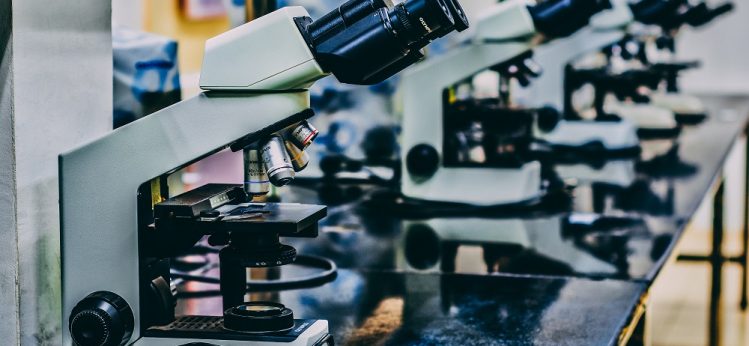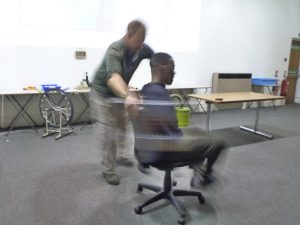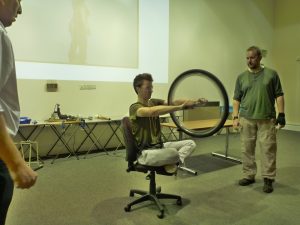


The very nature of Science education has the unwanted side-effect of stifling creativity; we spend our time teaching very specific skills and particular ways of going about the process of discovery. This is not in itself bad, but is designed to guide pupils into the scientific method and to prepare them for examination against a fairly rigid specification. In addition to the set of skills, there is a fairly turgid syllabus to assimilate. Whilst the syllabus is full, it is by no means complete in terms of the body of knowledge that exists in the scientific disciplines; this is where Café Scientifique comes in, as an open voyage of discovery into areas not covered by the syllabus and not restricted by an examination specification.
This year we explored the evidence and ideas behind the existence of life elsewhere in the universe, coming to the conclusion that the chances of life out there are very high indeed; the notion that we are the only living things in a universe of, an estimated, forty billion trillion stars seems more than a little unlikely. Some pupils attending have even taken the notion of joining the search for aliens further by signing up for the SETI (Search for Extra Terrestrials) meta-computing project.
Café Scientifique offers the opportunity for exploration beyond the classroom and invites questions on any aspect of the topic. Those attending are invited to tea and biscuits afterwards. This is the café part, to discuss any questions from any area of Science. We have dealt with enquiries from ‘What is outside the universe’ to ‘Is it true that water goes the other way down the plughole south of the equator’. This forum serves a number of functions; it allows time for the thirst for knowledge that may not be quenched in the classroom to be watered, but it also allows us as educators to share our passion for the subjects we teach in an unfettered way. This permits a quite different interaction between pupils and teachers, one which enhances and strengthens the learning process for both parties.
There is an arrogant assumption embodied in Science, that because we can explain most of what we observe in day-to-day life, we therefore know pretty much all there is to know. This is echoed during lessons, where the question is often asked, ‘What is there left to find out? Don’t we know it all?’. Famously, Lord Kelvin (of temperature fame) was reported to have said back at the close of the Victorian era, ‘There is nothing new to be discovered in physics now. All that remains is more and more precise measurement’. In the intervening years, we have discovered life that does not rely on sunlight, plastics, quantum physics, exotic new particles, the age of the universe (possibly), dark matter, antibiotics, transistors… I could go on, but I’m sure you get the idea.
So where next for Café Scientifique? To paraphrase Donald Rumsfeld, the former US defence Secretary: There are known knowns and we already teach these; there are known unknowns and these will be the basis for the next series of presentations; there are also unknown unknowns. More of these later.
Our upcoming presentations will encompass Einsteinian relativity: why can’t you go faster than the speed of light? Why do we all age slightly differently depending on where and how we live? Why do people living at the top of skyscrapers age faster? Also appearing next term is Quantum mechanics, famously described by William A Arnett as ‘the dreams that stuff is made of’. Why does light arrive in lumps? What does it mean that we behave as waves and particles at the same time? And whatever happened to Schrödinger’s cat? This new series marks a departure from previous presentations as they are now being prepared in conjunction with our Gifted and Talented pupils and will be made available not just to those in the school, but also to invited parties from outside. We will touch on some of the great unanswered questions, such as, ‘Where is all the antimatter?’, ‘What exactly is dark matter and energy?’ and even, ‘Why does time only go forward?’. I can’t promise any substantive answers, but definitely insight.
Finally, there are those unknown unknowns mentioned earlier; those I cannot comment on, except to say that I am proud to be feeding the next generation of Scientists who may well shed light on these. My open challenge to all my pupils is to make my life more difficult by advancing scientific knowledge so that I have to keep going back to college to learn more, just to stay doing my job.
Mr Nick Emsley, teacher of Physics

